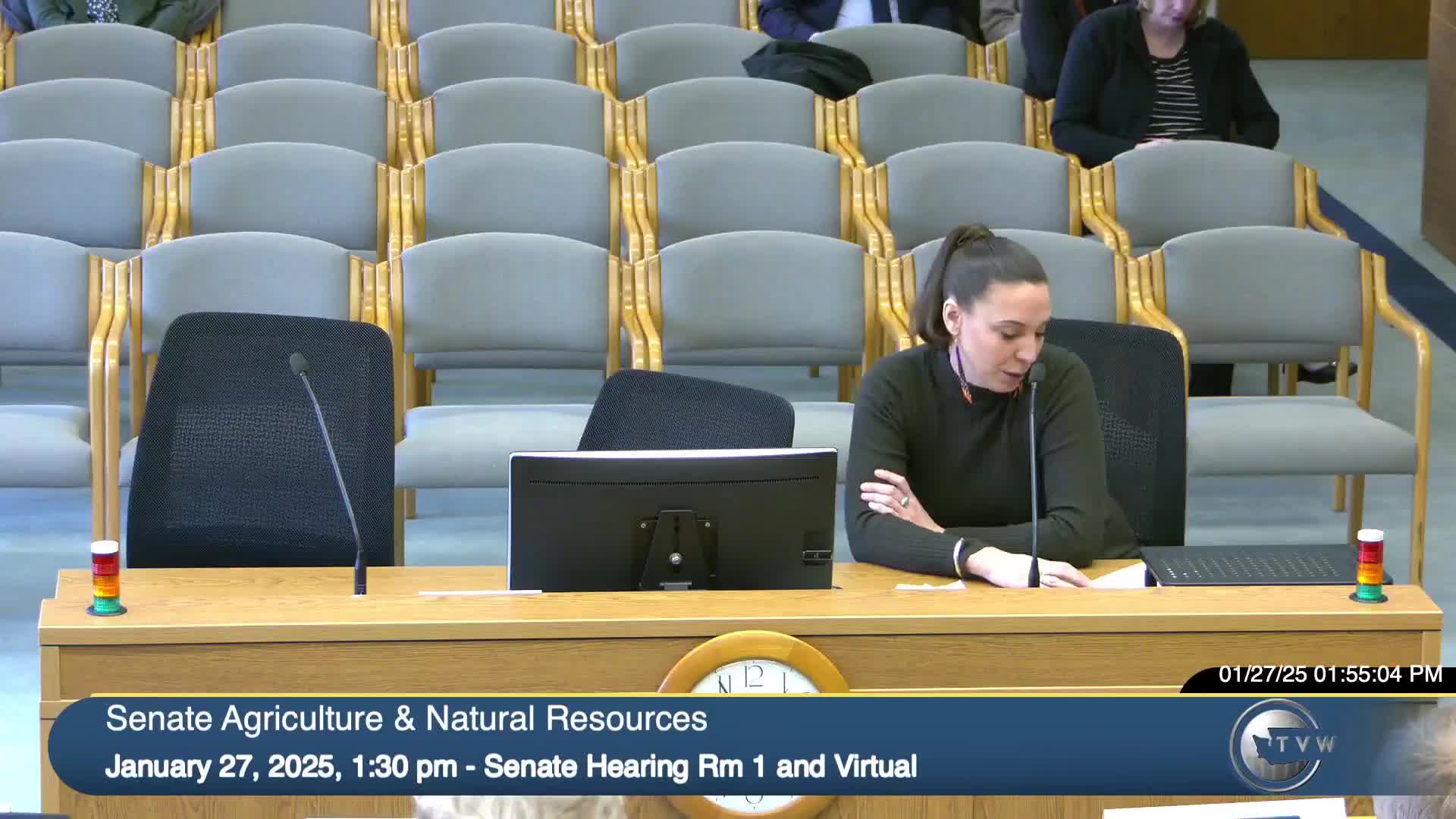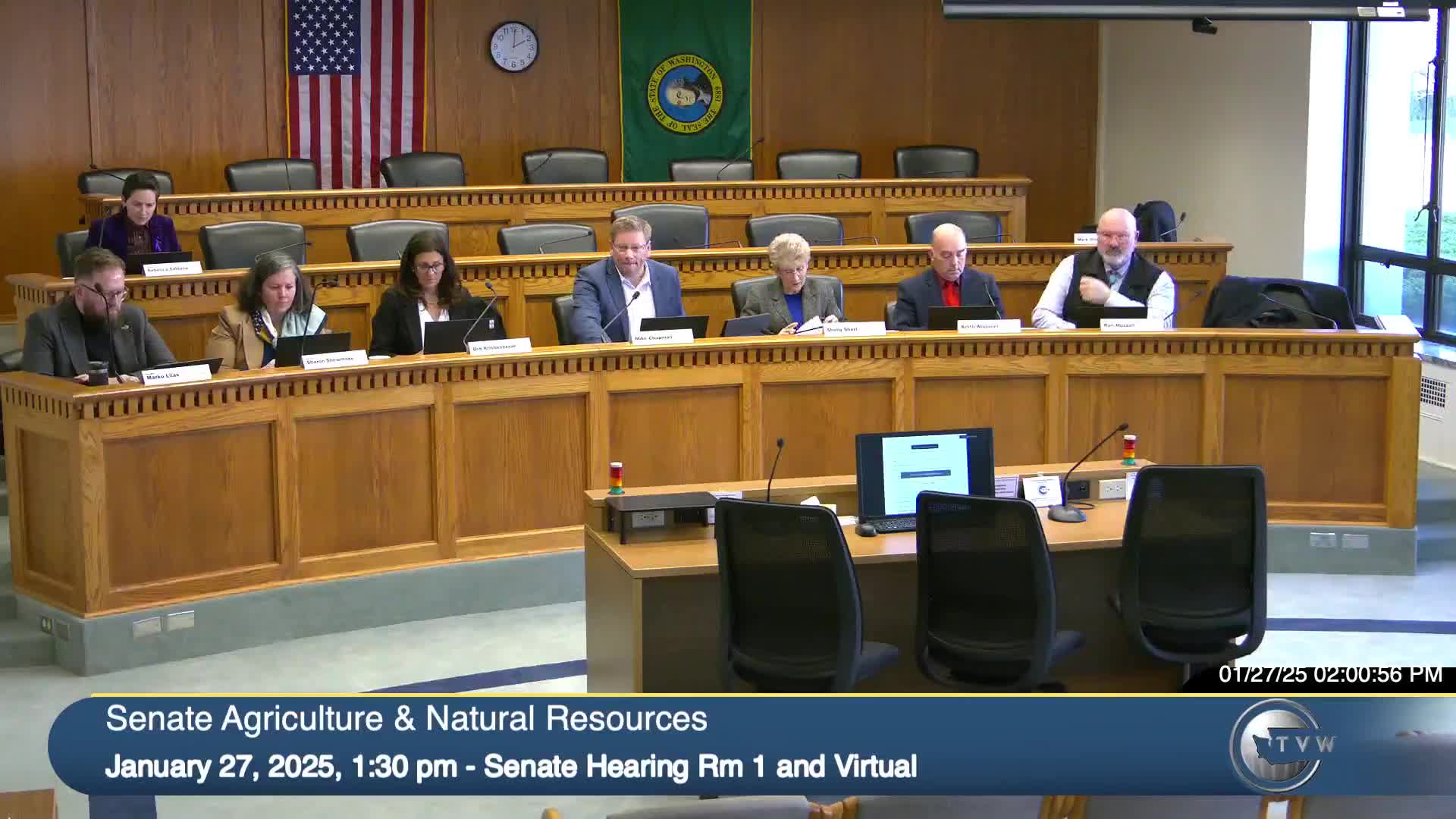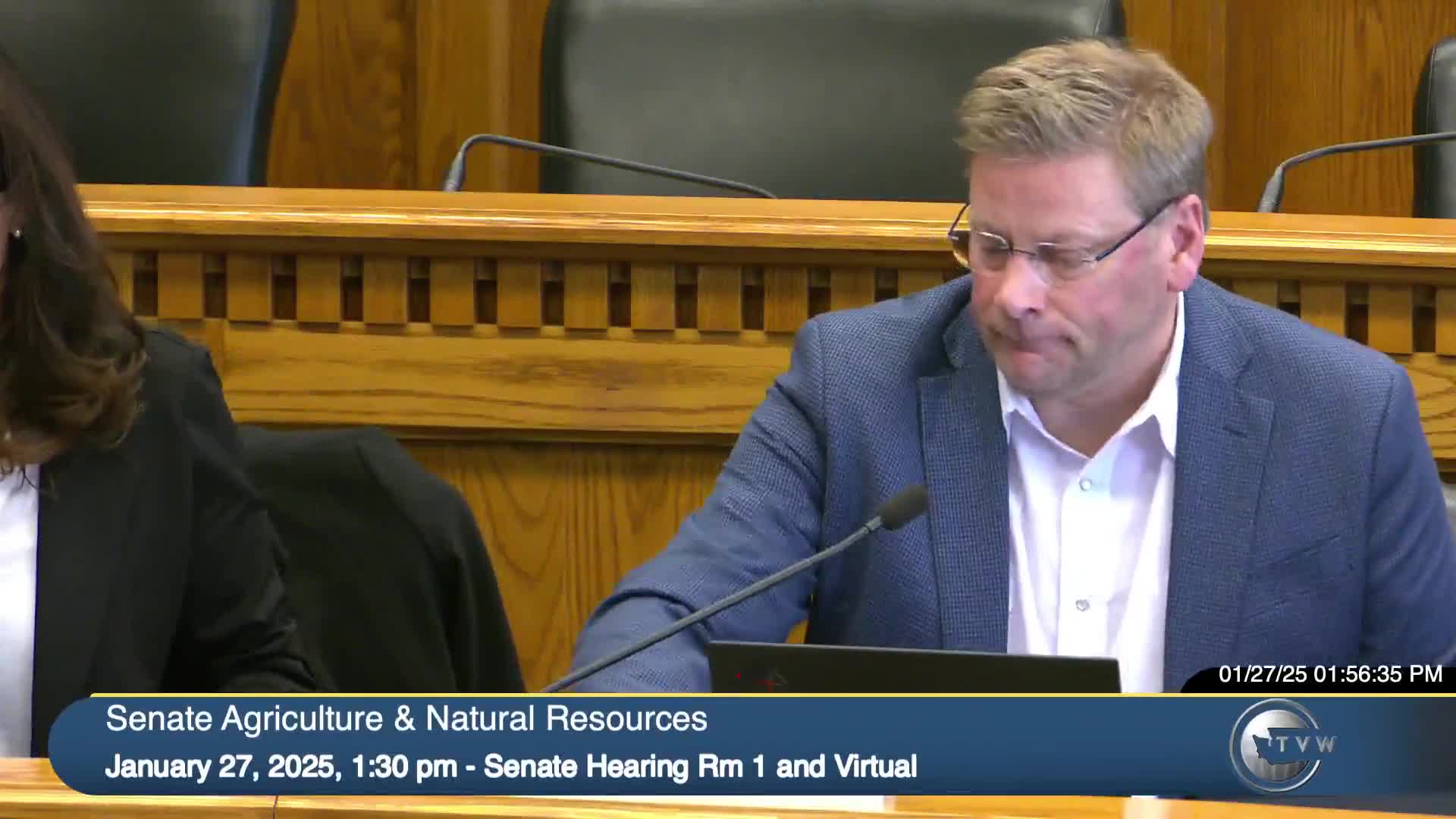Article not found
This article is no longer available. But don't worry—we've gathered other articles that discuss the same topic.

Bill would make expanded uses of Northeast Washington wolf-livestock account permanent; supporters stress local wildlife specialist role

Senate committee hears bill to fund research on burrowing shrimp harming Willapa Bay shellfish farms

Committee hears proposal to raise surface-mine reclamation fees; industry and small operators offer differing views

